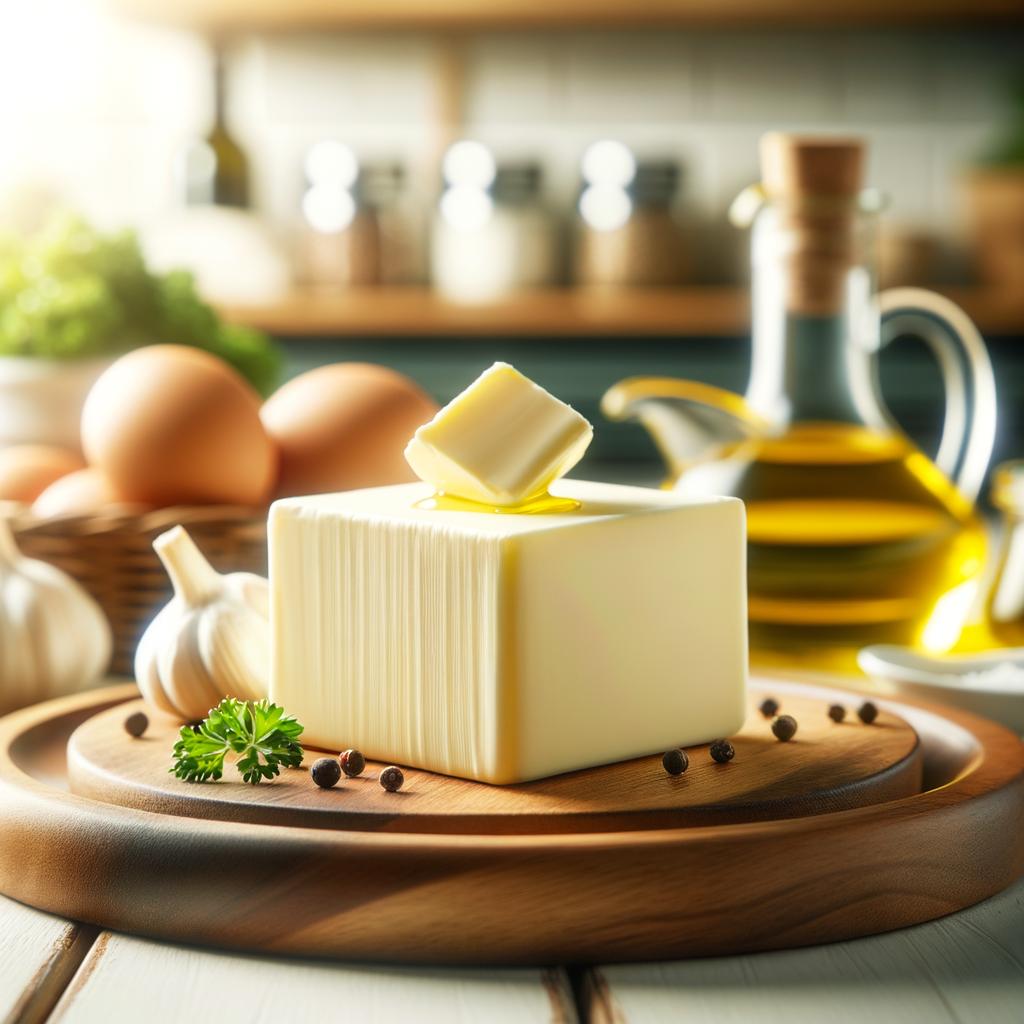Butter or Oil

Description Butter, a staple in the kitchens of many cultures, is a rich and creamy ingredient that is as versatile as it is flavorful. Its appearance is a soft, solid block of pale gold that melts into a glossy liquid when heated. The texture of butter is smooth and spreadable, with a distinct, rich, and creamy flavor that can be either sweet or slightly salty, depending on the type. What sets butter apart from other similar ingredients is its ability to enhance the flavors of other foods. It adds a unique depth and richness to dishes that oils and margarines simply cannot replicate.
Primary Uses Butter is used extensively in both sweet and savory cooking. It is a key component in a variety of dishes, from simple toast to intricate pastries. It's used in sautéing, baking, frying, and even as a spread. It serves as a base for many sauces, adding a silky texture and depth of flavor. In addition to its culinary uses, butter has been used in some cultures for medicinal purposes, such as soothing burns and moisturizing skin. Its cultural significance cannot be overlooked, as it has been a symbol of purity and prosperity in many societies.
History The history of butter is as rich and complex as its flavor. It is believed to have originated in ancient times when nomadic herders discovered that the agitation of milk in animal skins caused it to separate into butter and buttermilk. The use of butter spread across Europe during the Middle Ages, where it was often used in religious ceremonies and as a form of payment. Over time, butter has maintained its popularity, despite the introduction of alternatives like margarine and oil. There are also numerous folklore tales associated with butter, such as the Irish belief that butter made on May Day had magical properties.
Nutritional Information Butter is high in fat, providing a concentrated source of energy. It contains significant amounts of vitamin A, which is essential for vision and immune function, and vitamin D, which aids in calcium absorption. It also contains traces of other vitamins and minerals. While butter is high in saturated fats, recent studies suggest that in moderation, these fats may not be as detrimental to heart health as once thought. Compared to margarine, butter is a natural product with a simpler ingredient list and does not contain trans fats, which are known to increase the risk of heart disease. However, like all fats, it should be consumed in moderation as part of a balanced diet.

